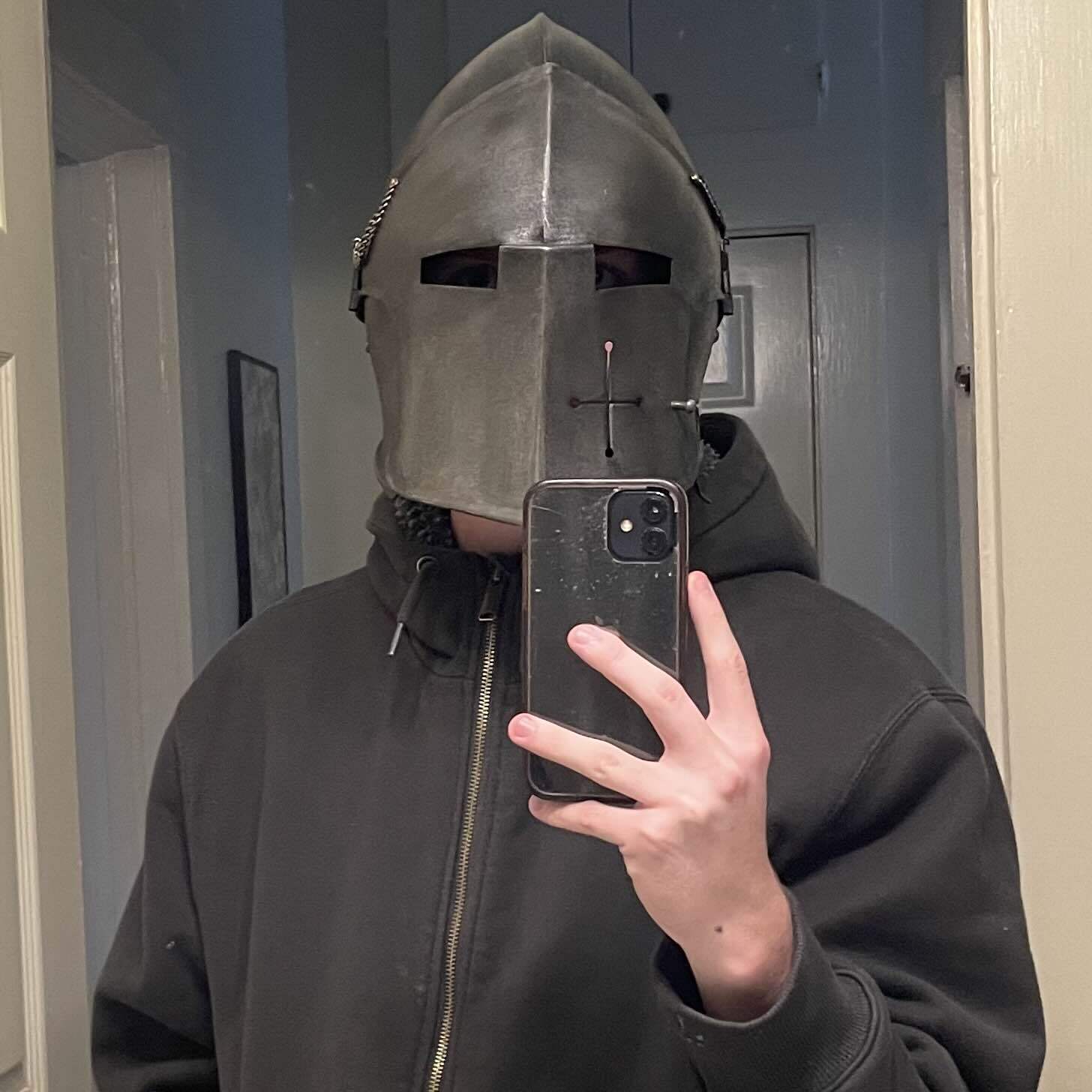

Nope. It has to come straight from the starfish
sbf@tuta.com | codeberg.org/sbf | @sbf:flieger.chat


Nope. It has to come straight from the starfish


Intellectual? Perhaps. Civil? Not always…


Hot ass water
Edit: Clarification: Poor hot ass water on it or dunk it in hot ass water
Edit 2, electric boogaloo: This is dependent on the material, according to my mother


You will always roll the same approach and action die when making attempt. If you are a thoughtful (d6) and careful (d12) wizard, you will always roll a d6 for your action and a d12 for your approach. Because of the possible outcomes of these die, your character will be good at engaging (3–6; 4/6 chance) and being calm (6–12; 7/12 chance), but bad at other things.
Edit: I just wrote a quick example scene for another commenter. Perhaps take a look at that.


My character: Sir Loan, the meat-headed knight of Wellington. I use a d12 action die (strong) and d10 approach die (courageous). The scene: Sir Loan and his entourage approach the mighty Chateau Blanc, the lair of some evil witch or something idk it doesn’t matter for this.
Narrator (as they are called in our game): “As you approach the magnificent, pearly gates, you find that they are locked. However, beneath your feet, you see strange symbols and number. Perhaps it’s a cl-”
Me: “No puzzle. Sir Loan smash.”
Narrator: “Ok… And you’re not gonna even take a look at anything before doing so?”
Me: “Nope!”
Narrator: sighs “Alright… I suppose that would be an attempt to forcefully [4–8] exert [6–12].”
Me: rolls and gets two nines “I succeed, but not critically.”
Narrator: “Amazing. As you enter the courtyard, you see two guards charging towards you. Perhaps looking around may have been beneficial. Everybody, prepare for combat!”
Me: makes an attempt to sharply exert “I critically succeeded in thrusting my blade through one of their visors.”
Party Member: makes an attempt to forcefully finesse “I tried to sprint around them but failed.”
Narrator: “Awesome! What were the initiatives for those?”
Me: “3.”
Party Member: “9.”
Narrator: rolls some dice “Ok, and it looks like the other guard failed his attempt to shoot you with his bow.”
Narrator: “Alright, Sir Loan, you begin the round by rushing up to a guard and thrusting your blade through his helm. He screams and falls to the ground. Party Member, you follow behind him with your dagger, adeptly dogging arrows coming from another guard. However, seeing the gore in front of you, you promptly faint and faceplant into the ground.”


I’m seeing the fingerprints of Blades in the Dark on this one!
Yup! One of our favorite games ;)
…how have you found this one works in practice? Seems like it might be a bit slow to determine successes until you memorise the success range for each die.
This is VERY true. Our first session with the resolution system in its current state was slow an clunky. However, sessions two and onward were super quick, much quicker than D&D’s d20+modifier+modifier+modifier+modifier+modifier+… system, lol. I think that’s to be expected with any new die system, though. And what’s nice is you only really need to memorize which dice specialize in which things, and then the corresponding ranges are the upper half of that die.


How so? The ranges get smaller as they approach 0, so each die is very roughly just as good at their specialty. The “bard-y” dice are slightly worse at their specialty but are slightly better at their non-specialty, but that was on purpose
It had it coming